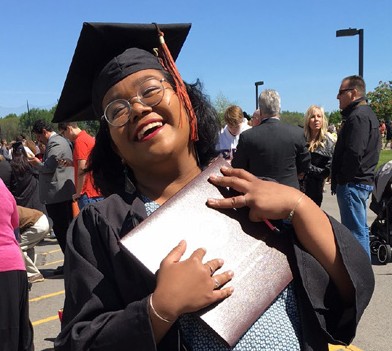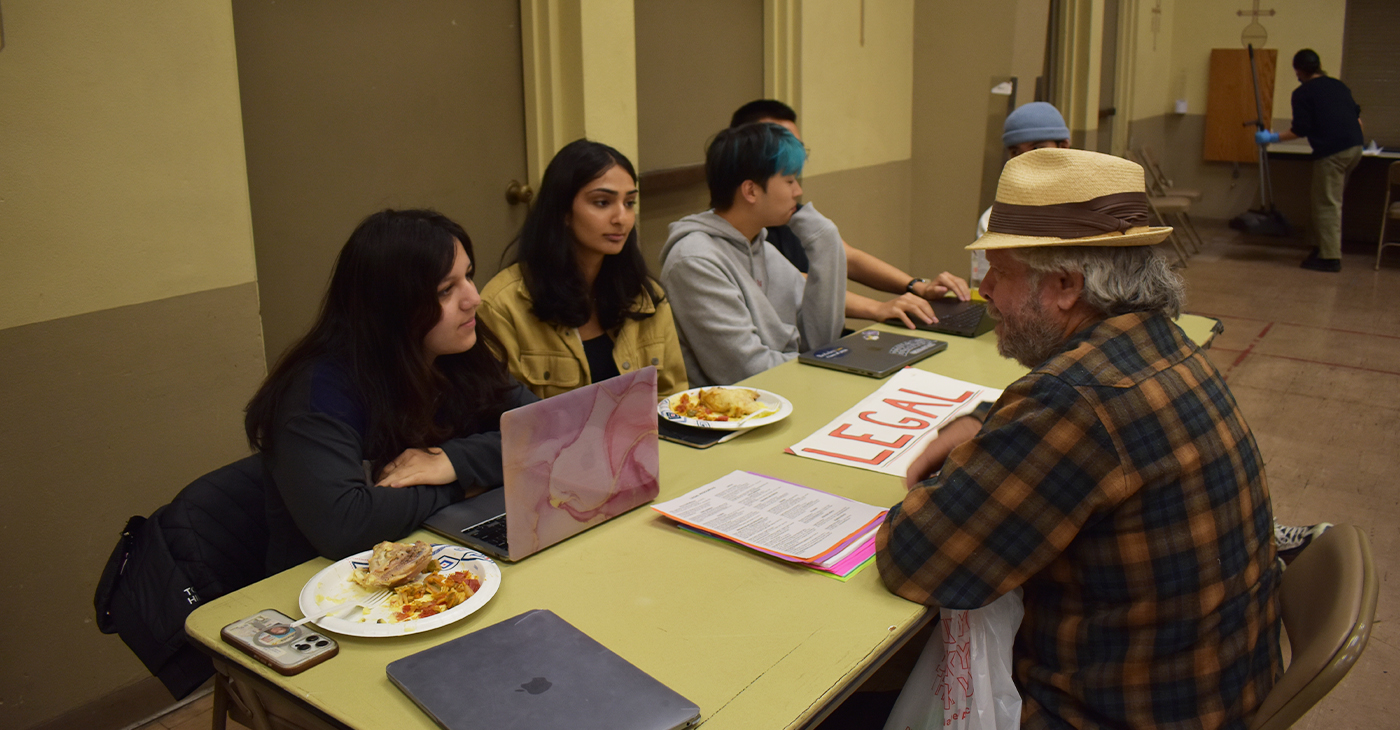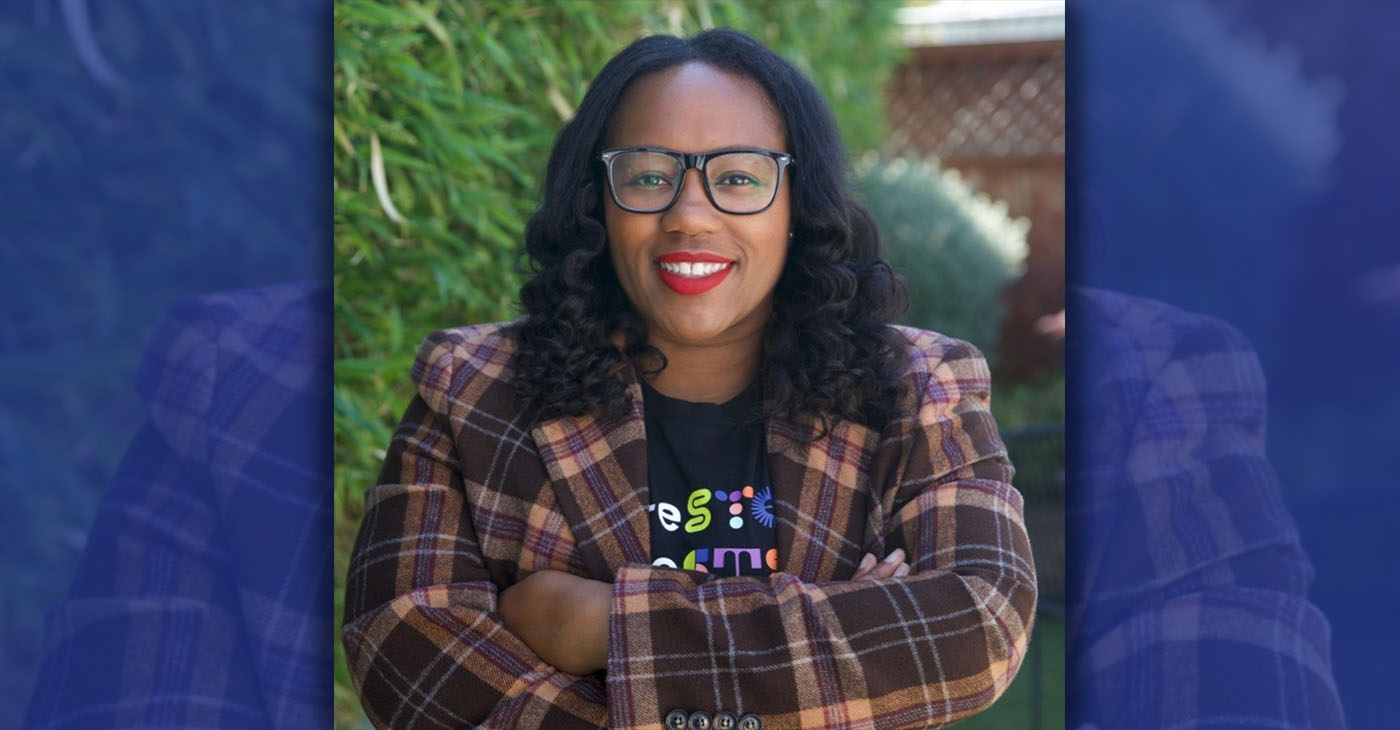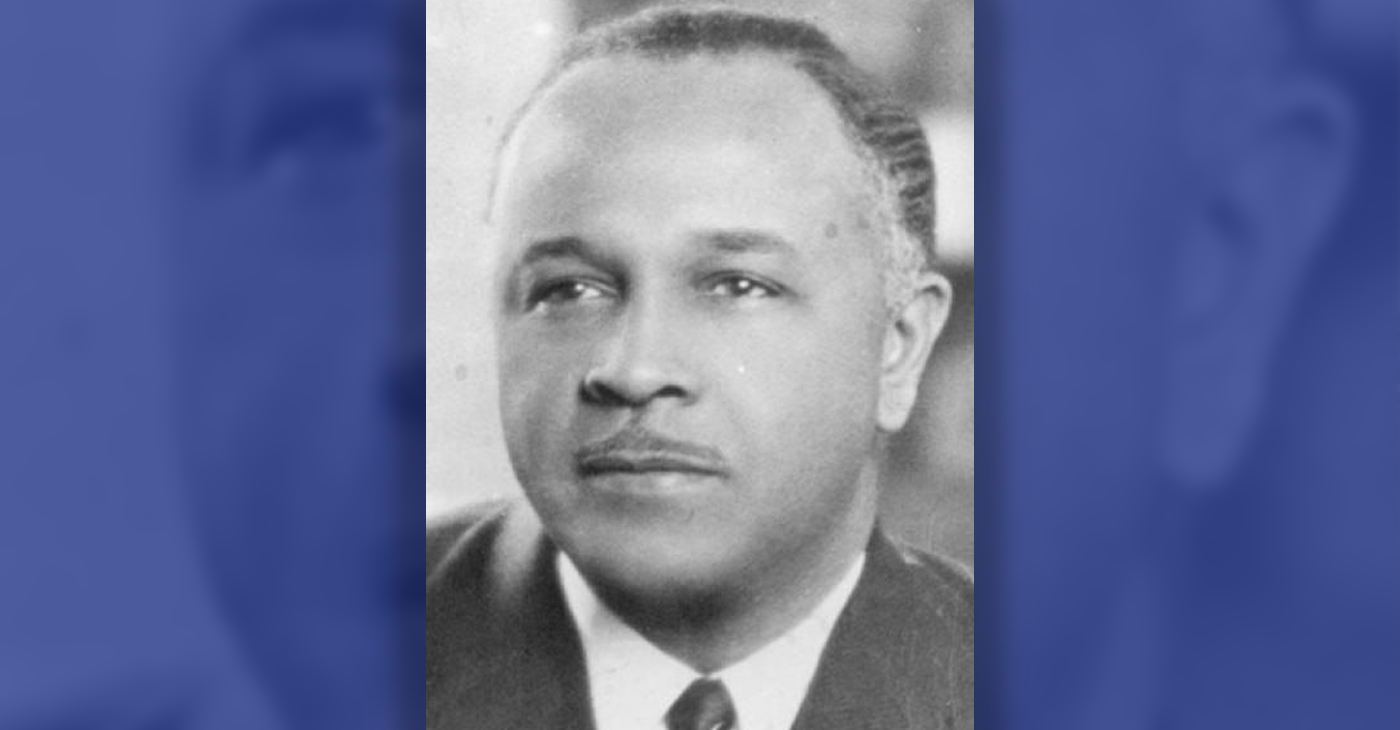Education
Oaklanders Step Up to Create Educational Opportunity


With gentrification making it increasingly harder to thrive in their hometown, many Oakland youth, in particular, are struggling to see a path to the future. Thousands of Oaklanders have stepped up to level the playing field for Oakland’s young people. Among them are a legion of Bay Area professionals who have joined East Bay College Fund to become mentors to Oakland high school grads beginning their college education. By providing guidance and encouragement to students, these volunteers are committed to making sure the burgeoning economy leaves no one behind.
College campuses can often be daunting environments for low-income students who are underrepresented in higher education. Mentors find that helping a student navigate and succeed in this environment is often as rewarding for themselves as it is to their mentees.
“Mentoring is really energizing and beneficial to both people, said Kenneth Tyrone Forward, a Business Systems Manager for PG&E currently mentoring a Castlemont High School graduate enrolled at College of Alameda. “It’s energizing for the mentor as they have the opportunity to share and pass along the knowledge and experience they have accrued through their career.”
The combination of scholarships with mentorship and peer-support services seem to be the ticket for success. While college drop-out rates for marginalized students in the U.S. is high, with approximately only 20 percent completing a degree in five years, East Bay College Fund scholars, who are still in school (2013-2018) are persisting at 88 percent.
Recognizing the opportunity to reinvest in their community, countless Oakland-based companies are choosing to partner with organizations that provide mentors to local students beginning college. Oakland native Curshanda Cusseaux-Woods, Community Relations Manager at Kaiser Permanente, serves as a mentor coordinator. Cusseaux-Woods finds inspiration in how her mentee, “…is so focused on getting through college. Having parents who didn’t have higher education, who didn’t go to college, she’s just very motivated. She has some personal obstacles that she overcame—she doesn’t let that stop her.”
As a first-generation U.S. citizen, mentor David Chu is familiar with the obstacles to college success that many students face in Oakland, where more than a quarter of residents are foreign-born. Chu found out about the opportunity to mentor from the charitable services division of Blue Shield of California, where he works as a marketing accounts manager. He says that despite the hurdles his mentee has had to overcome, “I’m just stunned by where he is right now. So if I can support that,…I’m happy to.”
Oakland native Denzel Tongue had a mentor while studying at Occidental College, where he graduated in 2017. On whether having a mentor impacted his ability to thrive in college as a first-generation, pre-med student, Denzel said, “During my first semester of college, I was doing well in a lot of my classes but I was really struggling in a chemistry class, and [my mentor]…really helped keep me going. I think I might’ve had a very different experience if I didn’t have him there supporting me.”
In the midst of so much disparity and destruction of communities, the power of people is alive and well in Oakland. The city that birthed the Black Panther Party, is a mecca for art and culture is also deeply embattled by the challenges of gentrification. Every movement for equity starts with the passion and generosity of regular people willing to stand up and say, “how can I be of service?” This is how change begins.
To be part of the mentoring movement in Oakland, help a dream come true, and support an Oakland-born college student by becoming a mentor, visit http://www.eastbaycollegefund.org/get-involved/mentor/. To contribute to a scholarship for Oakland’s resilient youth pursuing a higher education, consider making a donation of any size, or contribute to the inaugural Ronald Dellums Scholarship. Go to: www.eastbaycollegefund.org/donate. Fill out the pledge form to indicate how you would like to name the gift.
East Bay College Fund helps resilient public school students, underrepresented in higher education, access and succeed in college, expanding their life opportunities. East Bay College Fund aspires to involve the whole community in providing college access services, scholarships, mentoring, and support networks to assist young people in realizing their full potential.
Activism
A Student-Run Group Provides Critical Support Services to Underserved Residents
Those visiting The Suitcase Clinic can get legal advice, sign up for food assistance, receive housing resources, get medical help, or enjoy a hot, fresh meal. They can also get haircuts and foot washes from the student volunteers. Nilo Golchini, executive director of the clinic, said one of the goals for most of the students working there is helping bridge the gap of trust that exists between many unhoused people and the healthcare and social welfare systems.

Part One
By Magaly Muñoz
Every Tuesday evening, the dining hall of First Presbyterian Church fills up with dozens of people eating, laughing and moving from table to table, receiving much-needed services from UC Berkeley students – just a few blocks away from the university’s campus.
Individuals seeking support services can be found in this multi-stationed room on the south end of the church talking to law students, student case managers, or receiving medical attention in a corner by healthcare professionals.
This weekly event is hosted by Cal students through a volunteer-run program called The Suitcase Clinic.
The clinic, founded in 1989, was intended to offer free resources to underserved communities in Berkeley and surrounding cities. The majority of the clinic’s clientele are unhoused or low-income people looking for extra support.
Those visiting the clinic can get legal advice, sign up for food assistance, receive housing resources, get medical help, or enjoy a hot, fresh meal. They can also get haircuts and foot washes from the student volunteers.
Nilo Golchini, executive director of the clinic, said one of the goals for most of the students working there is helping bridge the gap of trust that exists between many unhoused people and the healthcare and social welfare systems.
During their tenure in the program, many of the students say they become strong advocates for homelessness rights.

Visitors of the Suitcase Clinic can receive haircuts and foot washing by student volunteers every Tuesday evening. Photo by Magaly Muñoz.
“We’re also standing in solidarity with them. So, it’s not saying, ‘I’m going to help you, but I’m also going to stand with you,’” Golchini said.
Student volunteers get extensive training prior to working directly with clients. Those interested have to take a semester-long class to become versed in areas such as outreach, intersectionality, how to interact with unhoused people, how to sign people up for social services. and more.
Volunteers then get to pick from three different clinics: General, Women’s, or Youth and LGBTQ+.
The General Clinic is the most popular among visiting residents, while Women’s and Youth/LQBTQ+ have more specialized services for attendees.
The Women’s Clinic has many of the similar services to General, but also includes nail painting, childcare, and massages.
The Youth and LGBTQ+ Clinic offers a safe space for young people navigating living on the streets, with services that include housing referrals, wellness and recreation classes and employment resources.
Golchini explained that it’s important for them to keep these clinics separate because the different demographics experience poverty and homelessness differently than those who visit the General Clinic.

Suitcase Clinic student workers posing for a photo with a frequent clinic attendee. The Clinic is open to Berkeley unhoused and low-income residents who need medical or legal service, or a hot meal. Photo by Magaly Muñoz.
“We’re able to provide spaces where people can come in and feel safe and not feel like they’re constantly worried that something’s going to happen to them,” she said.
An outreach team also visits encampments every other Saturday in the Berkeley area to provide hygiene kits and encourage people to visit the in-person clinic, if possible.
However, Golchini said engagement has been low for some time now due to a recent decision by the U.S. Supreme Court that allows cities to ban and cite people for sleeping on the streets.
She said a lot of their clientele got displaced to other cities over time, making it difficult to stay in contact with the services the Clinic was providing for them.
But that hasn’t slowed down the students at the Clinic, if anything, it has pushed them to do more for the community they serve.
Activism
Self-eSTEM Empowers BIPOC Women, Girls in Science, Math
In January 2025, Self-eSTEM will launch digital and generative AI programming, which provides digital literacy and AI literacy training through an entrepreneurial project-based activity. This programming will be a hybrid (i.e. in-person and online). Additionally, thanks to a grant from Comcast, in spring 2025, the organization will have a co-ed series for middle and high school students.

By Y’Anad Burrell
Special to The Post
In a world where technology plays an increasingly central role in all aspects of life, the importance of Science, Technology, Engineering, and Math (STEM) education cannot be overstated. Recognizing the significance of STEM for the future, focusing on young women and girls is a critical step in achieving gender equality and empowering the next generation.
Self-eSTEM, an Oakland-based non-profit organization, was founded by Adamaka Ajaelo, an Oakland native who had a successful corporate career with several Bay Area technology and non-tech companies. Ajaelo boldly decided to step away from these companies to give 100% of her time and talent to the non-profit organization she started in 2014 in the belief that she can change the game in innovation and future STEM leaders.
Over the course of a decade, Ajaelo has provided futurist tech programming to more than 2,000 BIPOC women and girls. The organization has an Early STEM Immersion Program for ages 7-17, Emerging Leaders Workshops for ages 18-25 and volunteer network opportunities for ages 25 and up.
In January 2025, Self-eSTEM will launch digital and generative AI programming, which provides digital literacy and AI literacy training through an entrepreneurial project-based activity. This programming will be a hybrid (i.e. in-person and online). Additionally, thanks to a grant from Comcast, in spring 2025, the organization will have a co-ed series for middle and high school students.
While the organization’s programs center on innovation and technology, participants also gain other valuable skills critical for self-development as they prepare for a workforce future. “Self-eSTEM encourages young women to expand on teamwork, communication, creativity, and problem-solving skills. The organization allows young women to enter STEM careers and pathways,” said Trinity Taylor, a seventh-year innovator.
“Our journey over the last decade is a testament to the power of community and opportunity, and I couldn’t be more excited for what the future holds as we continue to break barriers and spark dreams,” said Ajaelo.
“By encouraging girls to explore STEM fields from a young age, we foster their intellectual growth and equip them with the tools needed to thrive in a competitive global economy,” Ajaelo says.
Empowering young girls through STEM education is also a key driver of innovation and progress. When young women and girls are encouraged to pursue careers in STEM, they bring unique perspectives and problem-solving approaches to the table, leading to more diverse and inclusive solutions. This diversity is crucial for driving creativity and pushing boundaries in scientific and technological advancements.
Self-eSTEM has fundraising opportunities year-round, but year-end giving is one of the most critical times to support the program. Visit www.selfestem.org to donate to the organization, as your generosity and support will propel programming support for today’s innovators.
You will also find more details about Self-eSTEM’s programs on their website and social channels @selfestemorg
Black History
Percy Lavon Julian: A Trailblazer and Business Titan in Chemical Innovation
Born in Montgomery, Ala., in 1899, Percy Lavon Julian grew up during a time when educational opportunities for African Americans were severely limited. Despite these challenges, his parents — graduates of what later became Alabama State University — instilled in their children a deep belief in the power of education. Julian excelled academically, graduating valedictorian at Indiana’s DePauw University in 1920.

By Tamara Shiloh
Percy Lavon Julian was a brilliant American chemist and businessman whose groundbreaking discoveries transformed the pharmaceutical industry.
Known for his innovative work in synthesizing medicinal drugs from plants, he was a pioneer who opened new doors in chemical synthesis. One of Julian’s most notable achievements was being the first to synthesize physostigmine, a natural product used to treat glaucoma. His groundbreaking methods for producing human hormones like progesterone and testosterone from plant sterols revolutionized the steroid drug industry. These methods paved the way for the affordable production of life-saving medications such as cortisone, corticosteroids, and artificial hormones for birth control.
Born in Montgomery, Ala., in 1899, Julian grew up during a time when educational opportunities for African Americans were severely limited. Despite these challenges, his parents — graduates of what later became Alabama State University — instilled in their children a deep belief in the power of education. Julian excelled academically, graduating valedictorian at Indiana’s DePauw University in 1920. While his dream was to pursue a doctorate in chemistry, racial barriers initially stood in his way. Undeterred, he eventually earned his Ph.D. from the University of Vienna in 1931, becoming one of the first African Americans to achieve this milestone.
Returning to the United States, Julian faced discrimination that made it difficult to secure academic or research positions. Despite being denied jobs due to his race — even from prestigious companies like DuPont — he persevered. His big break came at the Glidden Company, where he led the Soy Products Division. At Glidden, Julian spearheaded several important projects. He developed the world’s first plant for industrial-scale production of isolated soy protein, which served as an affordable alternative to milk in various products. During World War II, his refined soy protein was used to create Aer-O-Foam, a lifesaving firefighting foam for the U.S. Navy. This achievement earned him the NAACP’s Spingarn Medal in 1947. Later, Julian turned his focus to synthesizing hormones from plant sterols, revolutionizing the production of cortisone and other critical medications. His cost-effective methods made these treatments more widely available, improving the lives of countless patients worldwide. Eventually, he founded Julian Laboratories, Inc., solidifying his legacy as a leader in steroid chemistry and pharmaceutical innovation. Julian Laboratories chemists found a way to quadruple the yield on a product on which they were barely breaking even. Julian reduced their price per kg for the product from $4,000 to $400. He sold the company in 1961 for $2.3 million (equivalent to $23 million today) and became one of the first Black millionaires.
The U.S. and Mexico facilities were purchased by Smith Kline, and Julian’s chemical plant in Guatemala was purchased by Upjohn. In 1964, Julian founded Julian Associates and Julian Research Institute, which he managed for the rest of his life.
Julian also helped to establish the Legal Defense and Educational Fund of Chicago.
-

 Activism4 weeks ago
Activism4 weeks agoOakland Post: Week of November 20 – 26, 2024
-

 California Black Media3 weeks ago
California Black Media3 weeks agoCalifornia to Offer $43.7 Million in Federal Grants to Combat Hate Crimes
-

 Activism4 weeks ago
Activism4 weeks agoAn Inside Look into How San Francisco Analyzes Homeless Encampments
-

 Black History3 weeks ago
Black History3 weeks agoEmeline King: A Trailblazer in the Automotive Industry
-

 California Black Media3 weeks ago
California Black Media3 weeks agoCalifornia Department of Aging Offers Free Resources for Family Caregivers in November
-

 California Black Media3 weeks ago
California Black Media3 weeks agoGov. Newsom Goes to Washington to Advocate for California Priorities
-

 Activism3 weeks ago
Activism3 weeks agoOCCUR Hosts “Faith Forward” Conference in Oakland
-

 #NNPA BlackPress4 weeks ago
#NNPA BlackPress4 weeks agoPRESS ROOM: Clyburn, Pressley, Scanlon, Colleagues Urge Biden to Use Clemency Power to Address Mass Incarceration Before Leaving Office













































